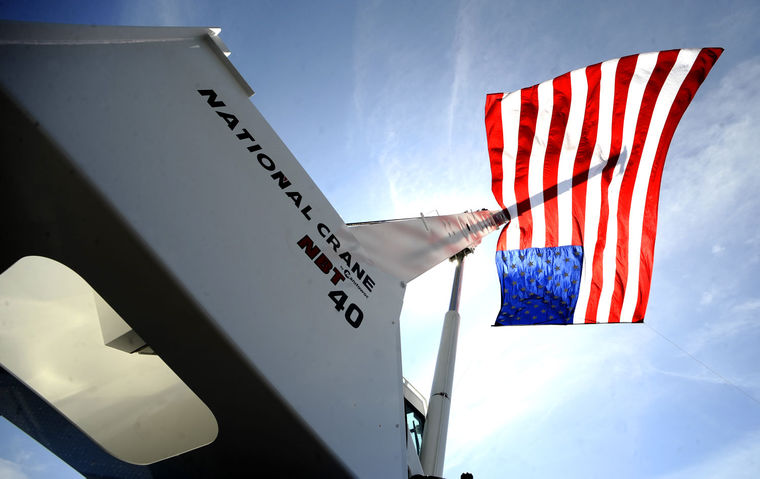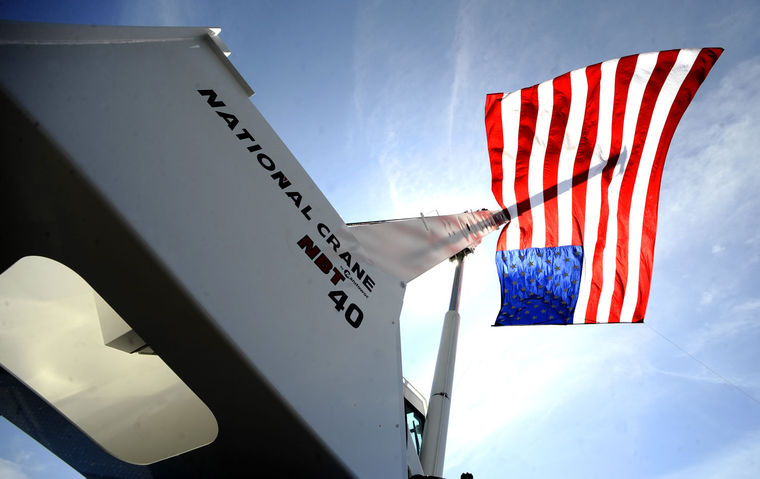Manitowoc Co. said Thursday it will split into two separate companies, spinning off its food-equipment business early next year from construction cranes as it faces increasing pressure from investors and tough business conditions.
The company’s strategy to pair its cyclical crane business with an unrelated, commercial kitchen business has struggled since its inception in 2008, when Manitowoc purchased U.K.-based Enodis PLC for $2.7 billion. The company acknowledged for the first time Thursday that the two businesses would be better off as separate companies.
“The timing is right now so each of them can pursue individual strategies and they can attract capital in different environments,†Chairman and Chief Executive Glen Tellock said in an interview with The Wall Street Journal.
Mr. Tellock, who engineered the purchase of Enodis, had maintained for years that the deal was needed to diversify the Wisconsin-based company’s sales. Mr. Tellock had argued that Manitowoc’s legacy crane business was too prone to deep slumps to operate as a stand-alone company. But Mr. Tellock on Thursday said the businesses are now able to stand on their own after years of restructuring their operations to boost margins.
“We see it as an opportune time to make this split in 2016,†said Mr. Tellock, who has led the company since 2007.
But the businesses struggled in 2014, and the company offered a mostly downbeat forecast for 2015, especially for cranes. Manitowoc predicted that crane revenue would fall by about 5% in 2015, after 2014 sales dropped 8% from 2013 to $2.3 billion. Operating income from cranes tumbled 25% to $163.9 million. Demand for big cranes has continued to bump up against still-weak commercial construction activity in the U.S. and overseas. Manitowoc also mentioned a slowdown in oil drilling from lower oil prices as a headwind for cane demand this year.
“As we look at 2015, we are not likely to see improved market conditions in the near term,†Mr. Tellock told analysts Thursday.
The food-equipment business softened late in 2014 after a strong start. Sales rose 2.6% from 2013 to $1.6 billion, while operating income slipped 6.5% to $234 million. The company forecast that food business sales would rise about 5% in 2015. Demand for commercial kitchen equipment—such as freezers, fryers, ovens and ice makers—has been tepid amid restrained spending on restaurant-chain expansion. Moreover, Manitowoc remains saddled with debt from the purchase of Enodis.
Analysts said the businesses’ anemic profits and the debt are likely to result in low stock values for the separate companies.
“While the breakup of the company should not be unexpected, the timing was much sooner than we had anticipated,†said Stephen Volkmann, an analyst for Jefferies.
Company executives played down the influence of activist investors who have been calling for a breakup for several months. Activists buy large stakes in companies and try to use their investments to leverage major changes. In June, Relational Investors LLC, the activist fund co-founded by Ralph Whitworth, disclosed an 8.5% stake in Manitowoc and called its two business lines “incongruent.†In December, investor Carl Icahnrevealed a 7.8% stake, saying he wanted to talk with Manitowoc management about a breakup and was interested in representation on the Manitowoc board. Neither Relational nor Mr. Icahn was immediately available for comment Thursday.
Earlier this week, Manitowoc said it had extended a deadline for shareholders to nominate directors for the board, which originally had been Friday. The extension is common when a company is working with an activist investor to avoid a proxy fight over control of the board. Manitowoc also revealed Thursday that its board of directors would be elected annually as would the board of the spun-off food-equipment business. Staggered board terms for directors are typically used to block the infiltration of alternative slates of board candidates.
Mr. Tellock said the breakup of the company was under discussion for a while, adding that company leaders sought opinions from a variety of shareholders.
“It was not done listening to one shareholder,†he said. “We take input from all our shareholders.â€
Still, some analysts said the breakup signals management’s capitulation on a strategy that never performed as originally anticipated.
“Cranes never really got better [after the 2008 recession] and the food service had too much debt to keep up with the best-in-its-class companies,†said Lawrence De Maria, analyst for William Blair.
—David Benoit contributed to this article.
Write to Bob Tita at [email protected]


